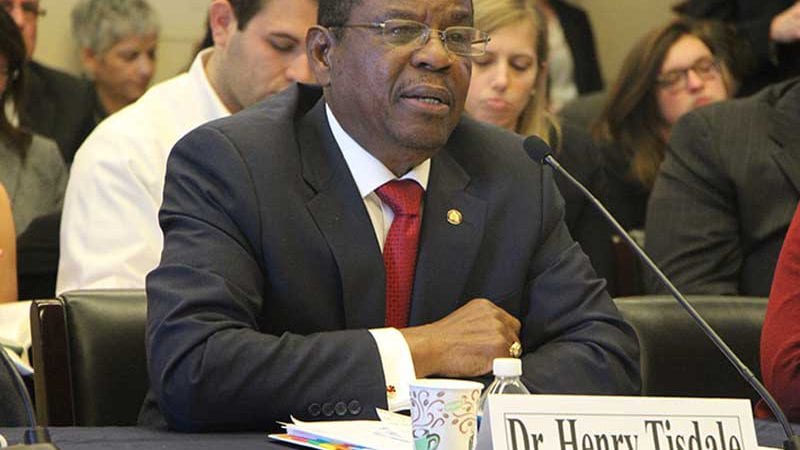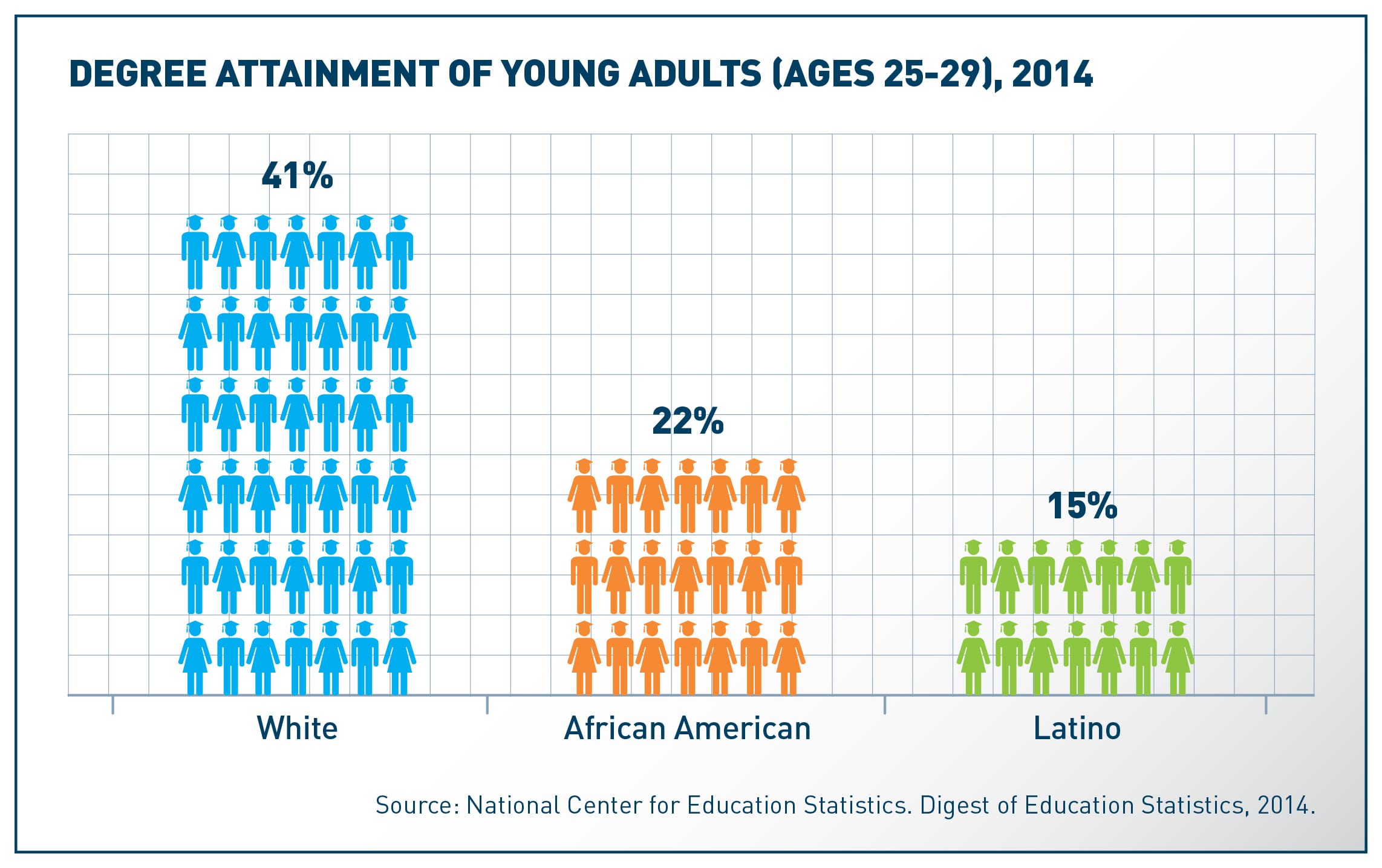Public Policy Priorities

UNCF works in Washington and in communities across the country to ensure that a good education is available to every American. Our public policy work—keeping the needs of our students and the colleges and universities they attend front and center as laws are made—is one of the most important things we do. It may not make front-page headlines, but our efforts have helped to change the face of American education for more than seven decades.
Learn more about UNCF’s public policy priorities for the Trump Administration and the 115th Congress
Our Challenge
Since the enactment of the Higher Education Act (HEA) in 1965, federal postsecondary education programs and policies have increased opportunities for our students and member institutions. But there is much more to do. In 2014, only 22 percent of African Americans between the ages of 25 and 29 had earned a college degree—about half the rate for white Americans.

Increasing federal college assistance not only helps African American college students, it also helps our country and the economy as a whole, because college graduates earn more, save more and are employed more, making fewer demands on the public purse and paying more taxes.
OUR PRIORITIES
Invest in HBCUs
Another top advocacy priority is securing a $130 million funding increase for the U.S. Department of Education’s Title III Strengthening HBCUs Program. HBCUs have played—and continue to play—an outsized role in helping greater numbers of minority youth obtain a college degree. However, the legacy of HBCUs has included a history of federal under-investment that must be corrected. Learn more about the Title III Strengthening HBCUs Program.
Reauthorize the Higher Education Act
This year, Congress is working on reauthorizing the 1965 Higher Education Act (HEA), which establishes essential college assistance programs and policies such as Pell Grants and student loans. UNCF is working to enhance college access, affordability and attainment by simplifying an overly complex student aid system, restoring Pell Grant purchasing power, lowering interest charges on federal student loans and making income-based student loan repayment universal and automatic. Learn more about UNCF’s HEA reauthorization priorities.
Oppose Institutional Risk-Sharing
The concept of “institutional risk-sharing”—penalizing colleges for student loan defaults—has gained currency as a way to improve student outcomes and control rising student loan debt. The goals are worthy but the means would be counter-productive. These legislative proposals would require financially-strapped HBCUs to make payments to the U.S. Department of Education when students do not repay their federal student loans. Risk-sharing would have a chilling effect on higher education access and completion for low-income, first-generation and minority students who face the greatest challenges to college attainment. Learn more about how risk-sharing could negatively impact HBCUs.
Fact Sheets
- Parent PLUS Loans
- UNCF Recommendations for HBCU Executive Order
- Top Priorities for HBCUs
- Higher Education Act Reauthorization Priorities
- HBCU Innovation Fund
- Institutional Risk-Sharing Proposals: Concerns and Alternatives
- Suspend Cohort Default Rate Sanctions
Comments, Letters and Testimony
- UNCF Letter to Senate Committee on Finance and House Committee on Ways and Means regarding HR 1, Tax Cuts and Jobs Act
- HBCU Coalition Letter to U.S. Secretary of Education John King on the Proposed “Borrower Defense” Regulation
- UNCF Letter to the House Education and Workforce Committee on HR 5530, the Improving HBCU Capital Financing Improvement Act
- UNCF Letter to House and Senate Armed Services Committees
- UNCF Letter to Senator Durbin on Institutional Risk-Sharing
- HBCU Coalition Letter to Senator Alexander on Institutional Risk-Sharing White Paper
- UNCF Letter to Senator Alexander on the Financial Aid Simplification and Transparency (FAST) Act
- UNCF Comments on Teacher Preparation Regulations
- UNCF Statement on Pay As You Earn Plan